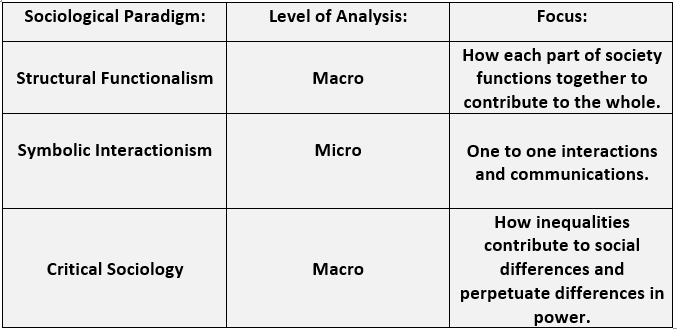Introduction to Sociology
@@Objectives:@@
What is Sociology?
Explain concepts central to Sociology.
Describe the different levels of analysis in Sociology (Micro Sociology, and Macro Sociology).
Understand how different sociological perceptive has developed.
^^What is the definition of Society?^^
A community/group of people having common traditions.
The aggregate/collection of people living together in in an ordered community.
A large group of individuals who are associated together.
People who share rules, values, and traditions.
The study of how humans interact in society.
A social science involving the study of the social lives of people, groups, and societies.
The study of our behaviors as social beings, covering everything from the analysis of short contacts.
^^What is the definition of freedom?^^
- The power or right to act, speak, or think as you intend. However, within the limits of respect to society and other attributes.
^^What is culture?^^
- Includes the groups’ shared practices, values, beliefs, norms, attributes, and artifacts.
^^What is Sociology derived from? ^^
- Sociology is derived from the Latin word (Socious) @@which means companion. The other half is taken from a Greek word@@ (Logos) @@which means speech or reason. Together they mean, reasoned speech about companionship.@@
^^There are four different levels of Analysis:^^
- The sociologists break the study of society down into four separate levels of analysis. Microsociology, Macrosociology, Meso Sociology, and Global Sociology. However, the basic distinction is between micro and macro. Kenneth Walte studied these levels in 1959.
^^What is Methodology?^^
- The paradigm used to find the data that is collected through surveys, interviews, and sometimes both based on quantity/perceptives.
^^Sociological Theories or Perspectives:^^
Different Sociologist perceptive enables sociologists to view social issues through a variety of useful lenses.
